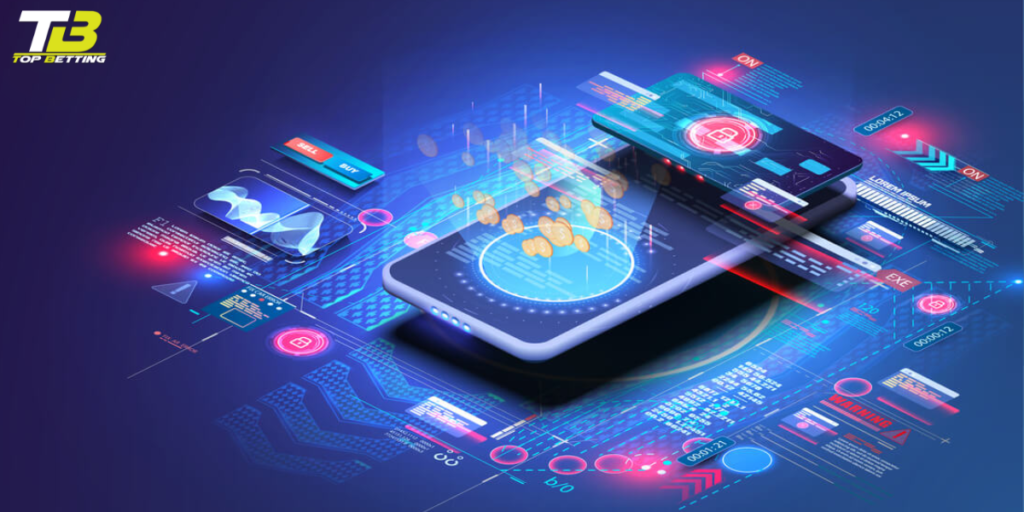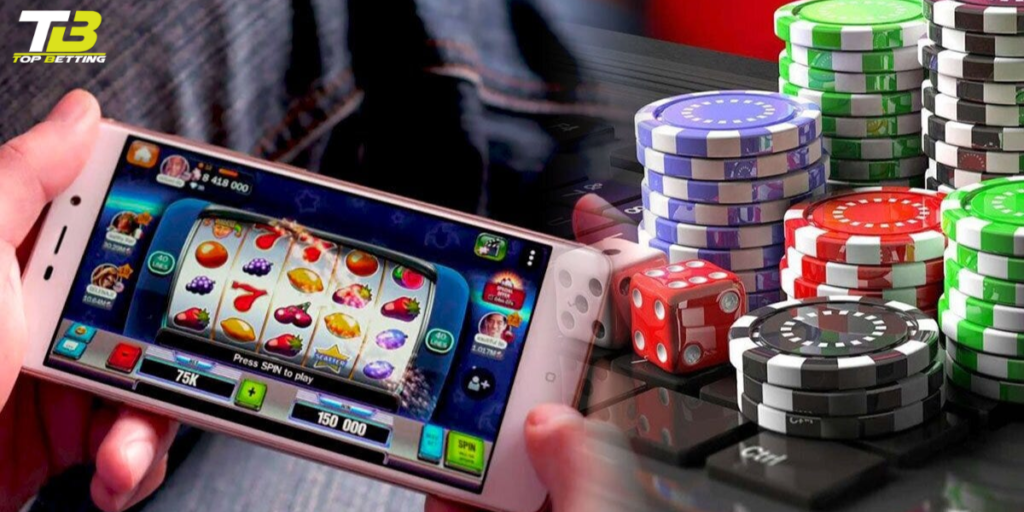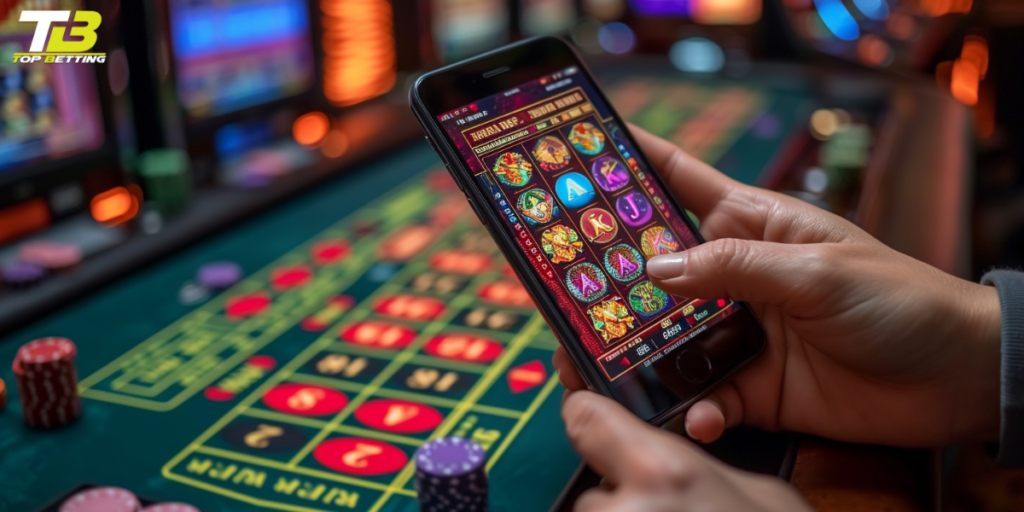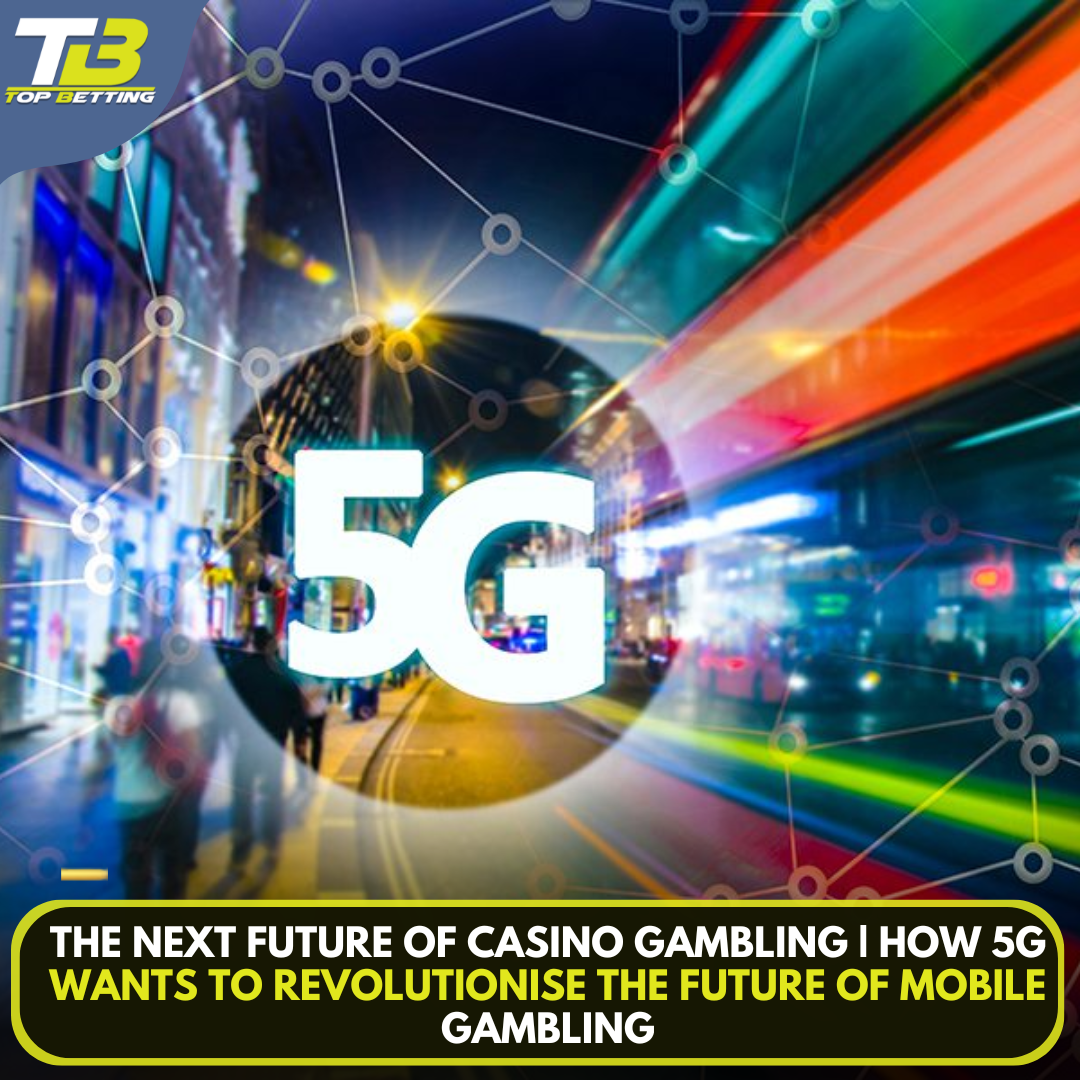
How 5G wants to revolutionise the future of mobile gambling
In the fast-paced world of technology, the arrival of 5G has ignited a wave of excitement and anticipation. With its promise of lightning-fast speeds and ultra-low latency, 5G technology is set to revolutionize various industries, and mobile gambling is no exception. The impact of 5G on mobile gambling is expected to be profound, offering a seamless and immersive experience for players.
What is Mobile Gambling?
Mobile gambling refers to the act of playing casino games or placing bets using a mobile device, such as a smartphone or tablet. Over the years, mobile gambling has gained significant popularity due to its convenience and accessibility. Players can enjoy their favorite casino games anytime, anywhere, without the need for a traditional desktop computer or a visit to a physical casino. With the rapid advancements in technology, mobile gambling has become increasingly sophisticated, offering a wide range of games and features that rival those found in traditional casinos.
The Growth of the Mobile Gambling Industry
The mobile gambling industry has experienced exponential growth in recent years. According to a report by Grand View Research, the global mobile gambling market size was valued at $53.7 billion in 2019 and is projected to reach $114.9 billion by 2027, growing at a compound annual growth rate (CAGR) of 11.5% during the forecast period. This growth can be attributed to several factors, including the increasing adoption of smartphones and the availability of high-speed internet connections. As more people own smartphones and have access to the internet, the mobile gambling market is expected to continue flourishing.
The Benefits of 5G Technology for Mobile Gambling
Enhanced User Experience with 5G
One of the key benefits of 5G technology for mobile gambling is an enhanced user experience. With its faster download and upload speeds, 5G enables mobile gambling apps to perform flawlessly, providing players with a seamless and uninterrupted gaming experience. Gone are the days of waiting for games to load or experiencing lags and buffering. With 5G, players can enjoy their favorite casino games with graphics that rival those of a console, immersing themselves in a visually stunning and realistic virtual casino environment.
Additionally, the reduced latency of 5G technology contributes to a more interactive gaming experience. In live dealer games, where players can interact with real dealers via video streaming, 5G ensures that there are no delays or disruptions in communication. Players can enjoy real-time interactions, adding an extra layer of excitement and authenticity to their gaming sessions. The combination of faster speeds and reduced latency makes 5G a game-changer for mobile gambling, elevating the overall user experience to new heights.
Faster and More Reliable Connections
Another advantage of 5G technology for mobile gambling is faster and more reliable connections. With 5G, players can expect near-instantaneous response times, allowing them to place bets and make decisions in real-time. This is particularly crucial in fast-paced games like poker, where split-second decisions can make all the difference. With 5G’s low latency, players can enjoy a seamless and uninterrupted gaming experience, without any noticeable delays or hiccups.
Moreover, 5G offers improved network reliability, ensuring that players stay connected even in crowded areas or during peak usage times. This is especially important for mobile gambling, where a stable and consistent internet connection is essential for an enjoyable gaming experience. With 5G’s increased capacity and robust network infrastructure, players can have peace of mind knowing that they won’t lose their connection at a crucial moment.
Increased Availability and Accessibility of Mobile Gambling

5G technology also brings increased availability and accessibility to mobile gambling. As the rollout of 5G continues, more areas will have access to high-speed internet connections, bridging the digital divide and allowing a larger population to engage in mobile gambling. This means that individuals who previously had limited access to stable internet connections can now enjoy the thrill of mobile gambling, opening up new opportunities for both players and the industry as a whole.
Furthermore, 5G’s improved network capacity enables more players to join the action simultaneously. In virtual casino environments, where multiple players can interact and play together, 5G ensures that the network can handle the increased load without compromising performance. This creates a vibrant and bustling gaming atmosphere, making mobile gambling even more engaging and enjoyable.
Potential Challenges and Concerns with 5G Technology
While the potential benefits of 5G technology for mobile gambling are vast, there are also potential challenges and concerns that need to be addressed. One of the main concerns is the increased risk of addiction and problem gambling. With faster speeds and more immersive gaming experiences, players may be more prone to excessive gambling behaviors. It is crucial for both players and operators to prioritize responsible gambling practices and implement measures to prevent and address gambling-related harm.
Another significant challenge in the deployment of 5G technology is the need for extensive infrastructure upgrades. To deliver the high speeds, low latency, and increased capacity promised by 5G, telecommunication companies and mobile network operators must invest heavily in upgrading their existing networks. This involves not only enhancing current cell towers but also installing new small cell sites, fiber-optic cables, and other critical components essential for the effective functioning of 5G networks.
The process of upgrading to 5G is both time-consuming and costly. Telecommunication companies need to overhaul their infrastructure, which often requires navigating complex regulatory landscapes and obtaining the necessary permits and approvals. The installation of small cell sites, which are crucial for providing the high-frequency millimeter waves that 5G relies on, can be particularly challenging in urban areas where space is limited and regulatory requirements are stringent.
Moreover, the deployment of 5G infrastructure is not uniform across different regions. While urban areas might see quicker adoption due to higher population densities and greater demand for high-speed internet, rural and remote areas could face significant delays. The economic feasibility of upgrading infrastructure in less populated areas poses a challenge, potentially leading to a digital divide where rural communities might lag behind in accessing 5G benefits.
The financial burden of these upgrades is substantial. Telecommunication companies are expected to invest billions of dollars in the coming years to build and expand their 5G networks. These costs can strain resources and impact the pace at which 5G is rolled out. Additionally, the return on investment may take time to materialize, as consumer adoption and the development of 5G-enabled devices and applications catch up with the network capabilities.
In conclusion, while the potential of 5G technology to revolutionize industries, including mobile gambling, is immense, the challenge of upgrading infrastructure cannot be overlooked. The significant financial investment and time required to deploy 5G infrastructure could lead to delays in its widespread availability, particularly in rural and less economically viable areas. Addressing these challenges is crucial for ensuring that the benefits of 5G are accessible to all, enabling a truly connected and advanced digital future.
The Future of Mobile Gambling with 5G

As the rollout of 5G technology continues and networks become more widespread, the future of mobile gambling looks promising. The combination of 5G’s lightning-fast speeds, low latency, and increased capacity opens up new possibilities for mobile gambling experiences. We can expect to see more innovative games and features that take full advantage of 5G’s capabilities, providing players with even more immersive and engaging experiences.
The integration of emerging technologies like virtual reality (VR) and augmented reality (AR) with 5G is set to revolutionize the mobile gambling experience. The high-speed, low-latency capabilities of 5G provide the perfect backbone for VR and AR applications, enabling seamless, real-time interactions and high-definition graphics that are crucial for an immersive gaming experience.
Imagine stepping into a virtual casino from the comfort of your home. With VR, you could walk through the casino floor, sit at a poker table, and interact with other players and dealers just as you would in a physical casino. The realistic environment created by VR would make the gambling experience more engaging and social, allowing players to feel a sense of presence and immersion that traditional online gambling cannot offer.
AR can also enhance mobile gambling by overlaying digital elements onto the real world. For instance, through an AR-enabled mobile device, players could see a roulette table projected onto their living room table or place virtual bets on a horse race happening on their TV. This blend of virtual and physical elements can make the gambling experience more interactive and exciting.
The advancements in 5G technology are crucial in making these experiences possible. The ultra-fast speeds and low latency of 5G ensure that VR and AR applications run smoothly, providing high-quality visuals and instant feedback essential for maintaining the illusion of reality. This technological synergy can eliminate the lag and buffering issues that currently hinder the adoption of VR and AR in mobile gaming.
Moreover, 5G can support a higher number of connected devices, enabling massive multiplayer experiences in virtual casinos where thousands of players can interact simultaneously without any performance degradation. This opens up new possibilities for social gaming and tournaments, bringing a community aspect to mobile gambling that can enhance user engagement and satisfaction.

Conclusion
The impact of 5G technology on mobile gambling is set to be profound. With its faster speeds, reduced latency, and increased capacity, 5G offers a seamless and immersive gaming experience for players. Mobile gambling apps will perform flawlessly, allowing players to enjoy their favorite casino games without any lags or buffering. Live dealer games will become even more engaging, with real-time interactions that are smooth and uninterrupted.
The increased availability and accessibility of 5G will bring mobile gambling to a wider audience, while the integration of emerging technologies will further elevate the gaming experience. As the rollout of 5G continues, the mobile gambling industry is poised for exponential growth, ushering in a new era of mobile gaming where the possibilities are infinite and the thrills are unparalleled.











